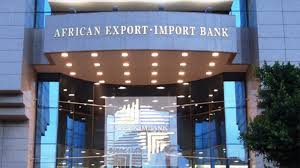Zambia has confirmed that its loan from the African Export-Import Bank (Afreximbank) is a commercial loan and not concessional. The country’s Secretary to the Treasury, Mr. Felix Nkulukusa, made this clear while speaking to Reporters on Friday in the capital city.
According to Mr. Nkulukusa, the southern African nation is still in negotiations with Afreximbank over the terms of the loan. He stressed that the loan would be restructured to ease the burden on Zambia’s finances.
“We are still negotiating with them. The debt will be restructured,” he said. “It’s not a concessional loan, it’s a commercial loan.”
This statement brings fresh clarity to Zambia’s debt situation, especially as the country tries to work its way out of a historic default. Zambia became the first African country to default on its sovereign debt during the COVID-19 pandemic in 2020.
Afreximbank, a major development finance institution for Africa, has long maintained that it should be treated like other multilateral lenders such as the International Monetary Fund (IMF) and the World Bank. These institutions usually give concessional loans, which come with low interest rates and longer repayment periods, and are traditionally exempt from restructuring losses.
However, industry experts and international financial players argue that Afreximbank also gives loans at commercial interest rates, which fall under the category of debt that can and should be restructured when a country faces repayment challenges.
In fact, people familiar with the matter reported back in April that the Paris Club — a group of official creditor countries — has already made it known that Zambia must include Afreximbank in its ongoing debt restructuring plan.
Zambia’s debt to Afreximbank currently stands at $45 million, based on data from the UK-based think tank, the Overseas Development Institute (ODI).
The ongoing negotiations are part of a wider effort by the Zambian government to restructure billions of dollars of external debt in order to unlock economic growth and restore investor confidence. The country has already reached deals with some of its bilateral creditors and is now trying to bring commercial and multilateral lenders to the table.
However, the news comes amid negative headlines for Afreximbank. Earlier this week, credit rating agency Fitch Ratings downgraded Afreximbank’s credit score to just one notch above junk status. The agency gave the bank a negative outlook and cited concerns over high credit risk and weak internal risk management controls.
The downgrade has sparked concerns about the financial health of the bank and its ability to support African economies without exposing itself to excessive risk. Analysts say it could also affect the interest rates the bank pays when borrowing money from international markets.
As Zambia tries to clean up its balance sheet, the role of regional lenders like Afreximbank has come under greater scrutiny. While these institutions are meant to support economic development and regional trade, their involvement in high-interest commercial loans is raising questions.
Analysts say Zambia’s decision to restructure the Afreximbank loan could set an important precedent for other African countries in debt distress. It may also force a wider conversation about the balance between development finance and commercial lending by multilateral institutions.
